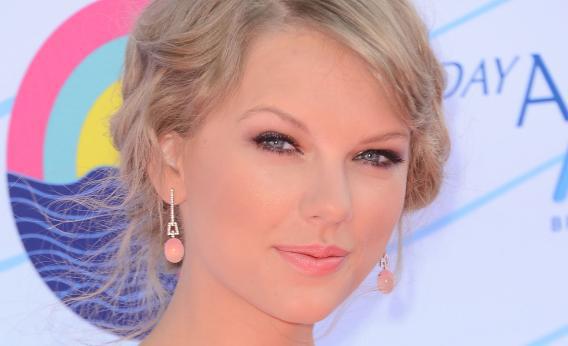I’ve always wanted to root for Taylor Swift. In an era of manufactured pop princesses, she came up on an independent label. She was the youngest songwriter ever hired by Sony/ATV Music Publishing—a particular aberration at a time when pop music often feels dominated by a small cadre of hit-makers. But as Swift readies the release of her fourth studio album, Red, this fall, the thing that most set her apart from her peers—a piercingly mature insight into the experiences of young women—is starting to seem more like an exception than a rule.
At her best, the lyrics that first made her so extraordinary have an emotional precision and a linguistic economy that make her carefully observed insights seem obvious. On “Fifteen” off her second album Fearless, released in 2008, the chorus reminds—warns, even—a listener: “When you’re 15 and somebody tells you they love you/ You’re gonna believe them.” And in “Back to December” from 2010’s Speak Now, widely considered an apology to ex-boyfriend Taylor Lautner, Swift sings “Turns out freedom ain’t nothing but missing you,” a concise encapsulation of grief and regret and a level of self-awareness that’s seemed more and more absent from her biggest hits.
But when she turns to specific details, Swift’s songs have often, from her earliest days, seem mired in less-mature, calcified high-school rivalries, their intention to establish herself as morally and culturally superior to anyone who gets in the way of what Swift wants. She slams her indie-record-listening ex as a snob in “We Are Never Ever Getting Back Together,” the new single released this week from Swift’s upcoming album. In 2008’s “You Belong With Me,” she mocks the cheerleader who’s dating the boy she wants to go out with for wearing skirts and heels instead of jeans and sneakers. And in 2010’s “Better Than Revenge,” she moved on to outright slut-shaming, saying her rival is “Not a saint and she’s not what you think/ She’s an actress/ But she’s better known for the things that she does on the mattress.”
This would be unpleasant enough if it wasn’t widely assumed, once again, that Swift had a specific target in mind: Camilla Belle, who dated Joe Jonas after Swift. She flambéed John Mayer in 2010’s “Dear John,” asking him “Don’t you think 19’s too young to be played with?” even as she differentiates herself from “All the girls that you’ve run dry [who] have tired lifeless yes,” because “I took your matches before fire could catch me.” The sense that Swift is publicly shaming her exes or her rivals is so strong that Jonas was quick to say publicly that he couldn’t possibly have been the target of “We Are Never Ever Getting Back Together” when it was released this week.
Swift doesn’t have to name names—she can simply sit back and let gossip sites do her work for her, never sullying herself by confirming or denying. I can’t blame her loyal fans for flocking to a singer who gives articulate voice to the angers of girlhood. I just wish she’d do a little better by them.
I don’t mean to say that women shouldn’t have the right to call out genuinely creepy or abusive behavior. Rihanna’s music in the wake of her battery by Chris Brown has been a fascinating and sometimes uncomfortable look at the complex emotions she appears to still be processing. Britney Spears has jabbed at the intrusive tactic of the paparazzi and the narratives used to judge her in songs and videos since she was hospitalized and placed under a conservatorship in 2008.
But where Swift once turned her powers of observation inward, analyzing young women’s experiences with compassion and insight and prioritizing female friendships as she did in “Fifteen,” it’s less interesting to watch her blame the bastards over and over again. Her once-fascinating songbook now reads more like the blind-items section of a gossip magazine. Once, Swift promised her listeners that “In your life you’ll do things greater than/ Dating the boy on the football team.” I didn’t think she meant moving on up to actors and singers or moving girl-on-girl crime from a hobby to a full-on artistic preoccupation.
